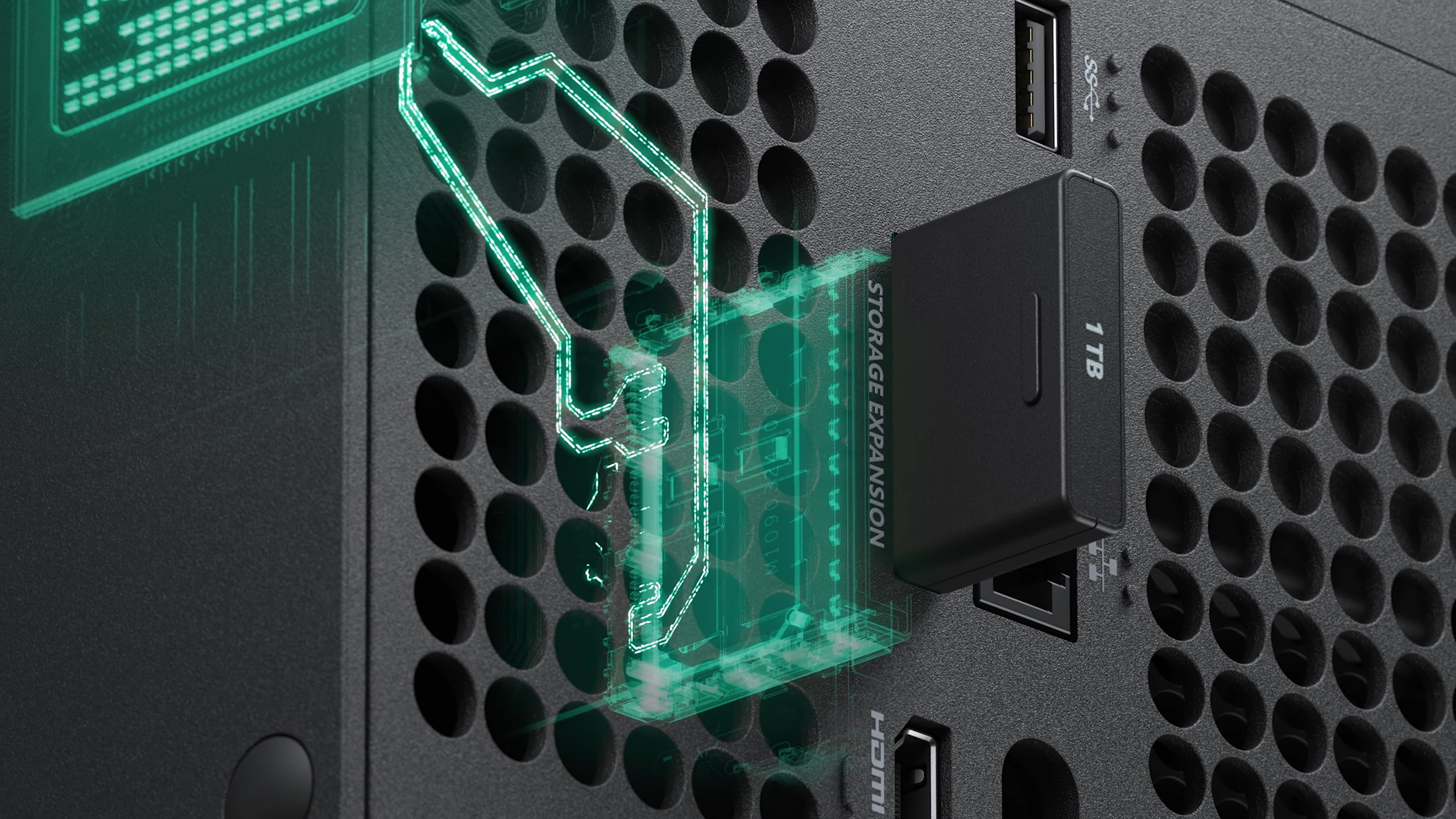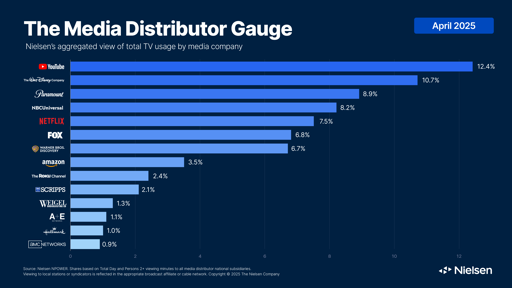This new 40TB hard drive from Seagate is just the beginning—50TB is coming fast!
-
…And it’s bound to be stupidly expensive.
Wish I could afford 20 of them, but not without winning the Powerball.
they have to make it at all before they make it cheap
-
The only drives I have ever had die on me were actually both WD, but it's all anecdotal, and I've had tons of WD drives that were great (my favorites were the raptors and velociratpers). I've owned way too many HDDs over the many years, and I can say that I haven't had issues with any, but again I do my research and only order from what I believe to be good runs of drives. In case you have never done so, take a look at the reports that Backblaze puts out on their drive reliability. I found it pretty eye opening. Before Backblaze start sharing their data, there used to be a site that crowd sourced HDD lifetimes and failure causes that I used to use when buying drives and I always entered my drive data there. I can't recall the name of it now nor do I know if it still exists, but you could definitely spot the "bad" gens on there and WD and Seagate were both pretty even as far as I recall. I remember Hitachi being statistically worse, but it made sense as they bought IBM's derided Deskstar business from them. Ironically, WD ended up buying Hitachi's HDD business years later, but I think it was considered OK by then.
It is not anecdotal, Seagate, FOR A DECADE, had quantifiably the worst drives with some models hitting 30% failure rate. They still, to this day, have shit models with over 10% and are almost always, the worst in back blaze reports of all data center drives. The only issue we have on the reports is nobody does random sampling and Seagate has always been the cheapest so they get overrepresented in reports.
-
Trust me, I've been waiting for those ancient WDs to die. I'm actually using them in a raid 1 config, so if one dies the other remains. I've also got anything really important backed up to cloud storage. I've worked in software (games) for 20+ years. I'm very well accustomed to data loss and recovery.
Anyway, much of my opinion on seagates comes from people I know who work in render farms and IT guys who manage entire studios. So its not really that anecdotal.
I'm very well accustomed to data loss and recovery.
Backs up anything "really important" to cloud storage
Yes, I do believe you are very well accustomed to data loss.
-
i dunno man, i have about 20 years worth of bad experiences with seagate. none of their drives have ever been reliable for me. WD drives have always been rock solid and overall just better drives in my experience. I have two WD externals sitting on my desk right now that are almost 15 years old. Still going strong.
I have killed every single type of magnetic platter drive from every brand they are all bad
-
I know people love to dunk on Seagate drives, but it was really just the one gen that was the cause of that bad rep. Before that the most hated drives were the "deathstars" (Deskstars). I have a 1TB Seagate drive that is 10 years old and still in use daily. Just do some research on which drive to buy, no OEM is sacrosanct. I'd personally wait 6 months to a year before buying one of these drives though, so enough people have time to find out if this generation is trouble or not.
Many people can't accept that one drive model isn't going to kill a company or make everything from them bad.
The exception being the palladium drive. Although its not directly attributed to the fall of JTS, who at the time owned Atari. Its was clear from the frontline techs these things were absolute shit.
The irony is that 1 out of say 10,000 was perfect. So much so I still have one of the 1.2 gig's that still spins up and reads and writes fine.
Its nearly a unicorn though.
-
Honestly, I get it. If you have a relatively small stash of media, say a couple TB worth, you can pretty easily say "well I watched this movie, so I'll delete it and make room for the next. When you get into the 10's of TB range, the mindset has switched from it being a dynamic, temporary library to a repository. And it becomes easier just to plug in another 10-20TB drive occasionally, rather than trying to curate thousands of movies and shows.
I can see both sides though. There's certainly something to be said for being deliberate about the media you consume--and therefore only needing enough storage for your immediate viewing plans. I'm not quite into the 100TB range with my library, but I definitely have moments where I feel like having so many options makes any given option seem less appealing.
I've almost entirely ditched streaming because of my library. I like to think I've learned how to encode media at a quality better than most services stream. Only service I still subscribe to is crunchyroll. I also run a plex server and share access with my family, so it's got its uses. Its not just me watching all of it. But I'm probably adding around 5 movies/tv shows to my server almost every day. The threat of ever dwindling disk space looms large.
-
I've almost entirely ditched streaming because of my library. I like to think I've learned how to encode media at a quality better than most services stream. Only service I still subscribe to is crunchyroll. I also run a plex server and share access with my family, so it's got its uses. Its not just me watching all of it. But I'm probably adding around 5 movies/tv shows to my server almost every day. The threat of ever dwindling disk space looms large.
Same here. I initially had high hopes that my family would take advantage, but apparently my parents would rather bug my siblings monthly for their Hulu/Netflix/Max/Disney+/Prime logins than install Plex or Jellyfin lol.
-
…And it’s bound to be stupidly expensive.
Wish I could afford 20 of them, but not without winning the Powerball.
i don't mind that, if it means that lower capacity drives will get cheaper
-
This post did not contain any content.
Hope you have a database for file management at that point.
-
exos are fine if you don't mind them being loud as hell.
They're not really meant for desktop use, so not really an issue. Also don't keep your servers under your bed, the ventilation is quite bad.
-
They're not really meant for desktop use, so not really an issue. Also don't keep your servers under your bed, the ventilation is quite bad.
Yup, if you can put em in a closet or something, you're golden.
-
I'm very well accustomed to data loss and recovery.
Backs up anything "really important" to cloud storage
Yes, I do believe you are very well accustomed to data loss.
Almost every bit of data i have is redundant. The stuff I back up to cloud storage is the stuff I would care about if my house were to burn down. But that stuff is all double, and triple backed up, locally as well.
-
Same here. I initially had high hopes that my family would take advantage, but apparently my parents would rather bug my siblings monthly for their Hulu/Netflix/Max/Disney+/Prime logins than install Plex or Jellyfin lol.
one day you will get to move out and then you can build any kind of server you want
-
I mean personally, for long term data hoarding, I dislike running anything below raidz2, and imo anything less than 5 disks in that setup is just silly and inefficient in terms of cost/benefit. So I currently have 5x16TB in raidz2. The 60% capacity efficiency kinda blows, but also I didn’t want to spend any more on rust than I did at the time, and the array is still working great, so whatever. For me, that was a reasonable balance between power draw, disk count, cost, and capacity.
honestly though. I kinda dislike that a 40 or 50tb mechanical drive is even a thing. What we really need is larger, more affordable solid state drives. Mechanical drives have had their place, but their limits are fairly clear at this point. And your point about rebuilding an array makes that obvious. They are just too slow. This move by seagate to make ridiculously large mechanical drives, should not be the beginning, as this article suggests. It should really be the end.
-
It is not anecdotal, Seagate, FOR A DECADE, had quantifiably the worst drives with some models hitting 30% failure rate. They still, to this day, have shit models with over 10% and are almost always, the worst in back blaze reports of all data center drives. The only issue we have on the reports is nobody does random sampling and Seagate has always been the cheapest so they get overrepresented in reports.
I would love to see your data on this if you have it available.
-
No thanks. I'd rather have 4TB SSDs that cost $100. We were getting close to that in 2023, but then the memory manufacturers decided to collude and jacked up prices.
To be fair, I believe the increased pricing then was mostly due to sales, and thus production, tanking post COVID along with the big inflation for a couple of years. There was almost certainly greed from the most prominent memory makers tackedo n though.
-
I thought prices seemed to be taking a while come down on 4TB SSDs as I had been looking at them for a while.
Don't really want it enough to spend £200 though. Would be to replace a 1+2TB HDD LVM. Now that I think about it, I have never copied a few TBs of data in one go.
I just recently replaced a bunch of 1TB and 2TB drives with an 4TB SSD and 8TB HDD pretty cheaply back in December. I was trying to get those in before tariff shenanigans. Technically, those old drives are still in use, just for redundancy now. Even the scary old Seagate drives!
-
Yes, if you have money to burn, sure. I'll go with the financially better approach.
I specifically said to go off price and availability, just have a backup because they will fail.
-
one day you will get to move out and then you can build any kind of server you want
I've been moved out for 25 years

I just hoped that my family would take advantage of me offering up my server for them to stream from.
-
I've been moved out for 25 years

I just hoped that my family would take advantage of me offering up my server for them to stream from.
lol, gotcha.
-
-
-
-
Salt Lake City, plans to implement AI-assisted 911 call triaging to handle ~30% of about 450K non-emergency calls per year
Technology 1
1
-
-
Meta shareholders overwhelmingly rejected a proposal to explore adding Bitcoin to the company's treasury, with less than 1% voting in favor of the measure
Technology 1
1
-
-






